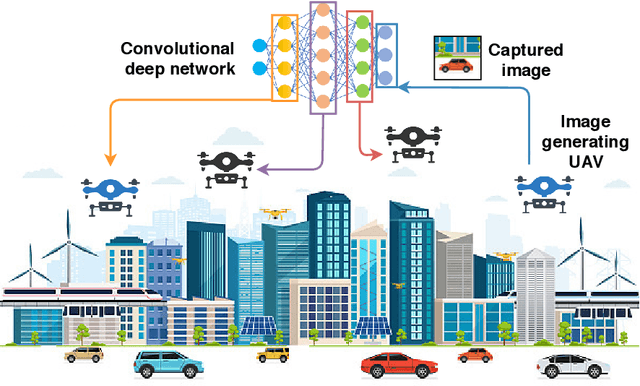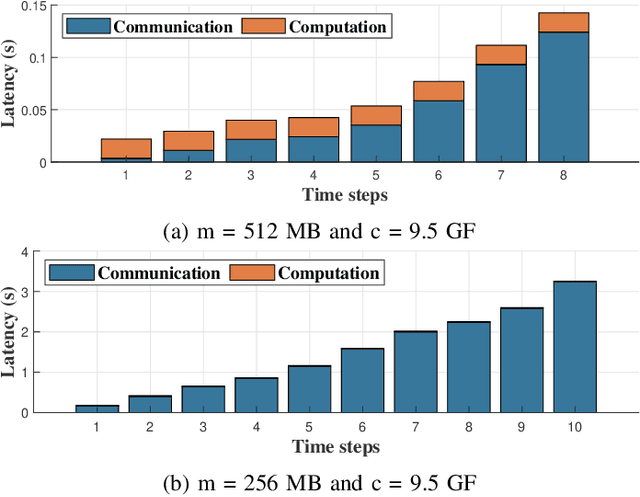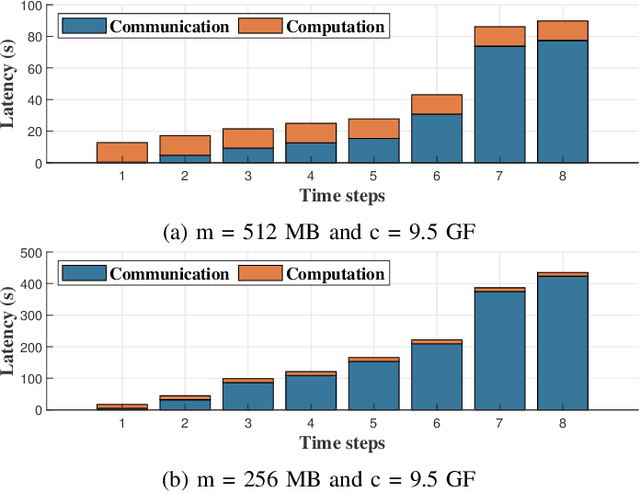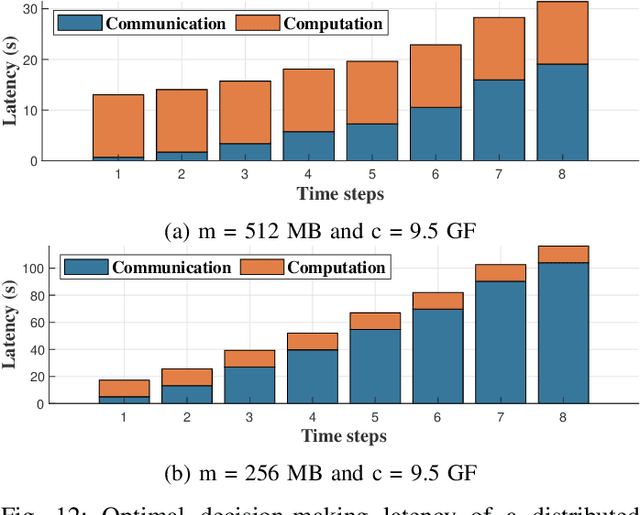Distributed CNN Inference on Resource-Constrained UAVs for Surveillance Systems: Design and Optimization
Paper and Code
May 23, 2021



Unmanned Aerial Vehicles (UAVs) have attracted great interest in the last few years owing to their ability to cover large areas and access difficult and hazardous target zones, which is not the case of traditional systems relying on direct observations obtained from fixed cameras and sensors. Furthermore, thanks to the advancements in computer vision and machine learning, UAVs are being adopted for a broad range of solutions and applications. However, Deep Neural Networks (DNNs) are progressing toward deeper and complex models that prevent them from being executed on-board. In this paper, we propose a DNN distribution methodology within UAVs to enable data classification in resource-constrained devices and avoid extra delays introduced by the server-based solutions due to data communication over air-to-ground links. The proposed method is formulated as an optimization problem that aims to minimize the latency between data collection and decision-making while considering the mobility model and the resource constraints of the UAVs as part of the air-to-air communication. We also introduce the mobility prediction to adapt our system to the dynamics of UAVs and the network variation. The simulation conducted to evaluate the performance and benchmark the proposed methods, namely Optimal UAV-based Layer Distribution (OULD) and OULD with Mobility Prediction (OULD-MP), were run in an HPC cluster. The obtained results show that our optimization solution outperforms the existing and heuristic-based approaches.
 Add to Chrome
Add to Chrome Add to Firefox
Add to Firefox Add to Edge
Add to Edge